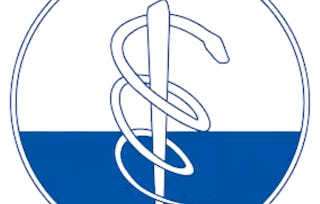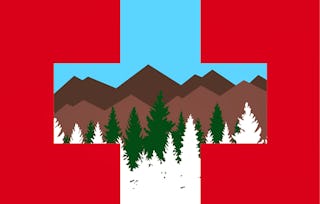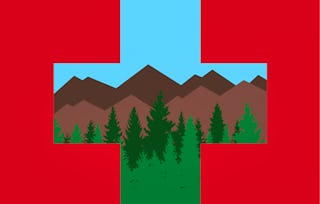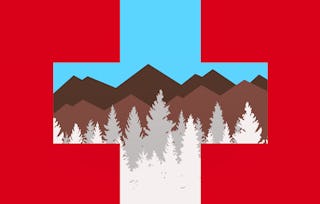In this course, you will develop the knowledge and skills to assess and stabilize certain types of patients for transport. By the end of this course, you will be able to: (1) Identify the signs and symptoms associated with a patient in shock, to describe the major categories of shock, to assess a patient with signs of shock and formulate a plan for treatment to stabilize the patient for transport, (2) Identify a patient in cardiac arrest and to describe the components of high performance CPR including placement of an AED, components of quality chest compressions, and options for oxygenation, (3) Identify a patient with under the influence of a drug of abuse or a toxicologic ingestion, assess a patient with a potential or known ingestion, and to formulate a plan for treatment and stabilization for transport including that of a violent patient, (4) Identify the symptoms associated with the most common environmental emergencies including hypothermia, hyperthermia, lightning strike and drowning, to assess patients with an environmental emergency and to describe initial treatment and stabilization for transportation and (5) Understanding your patient's story as well as to think critically about the complaint and symptoms associated with the gastrointestinal track, renal system, and the reproductive system.

Medical Emergencies: CPR, Toxicology, and Wilderness
5 days left! Gain next-level skills with Coursera Plus for $199 (regularly $399). Save now.

Medical Emergencies: CPR, Toxicology, and Wilderness
This course is part of Become an EMT Specialization



Instructors: Angela Wright, MD
34,253 already enrolled
Included with
(535 reviews)
Skills you'll gain
Details to know

Add to your LinkedIn profile
4 assignments
See how employees at top companies are mastering in-demand skills

Build your subject-matter expertise
- Learn new concepts from industry experts
- Gain a foundational understanding of a subject or tool
- Develop job-relevant skills with hands-on projects
- Earn a shareable career certificate

There are 4 modules in this course
In this module you will be learning about states of shock and the principles of resuscitation. Unlike our common use of the word shock referring to a mental state of feeling overwhelmed or alarmed, shock is a state of crisis within the body, involving one or more of the organ systems. If left uncorrected, shock can lead to death. The other topic, resuscitation, will cover the principles of treating and reversing shock, and most importantly, the treatment of cardiac arrest. We will discuss the latest scientific research and best practices of cardiac arrest resuscitation.
What's included
15 videos7 readings1 assignment
In this module we are going to learn about poisonings, or toxicologic ingestions. There is a whole field of medicine dedicated to the study of how the thing we ingestion, usually accidentally or in an attempt of self-harm, impact our bodies. This field is called toxicology. A poison is any substance that impairs health or causes death. A toxin is a drug or substance that is poisonous to a human, and will cause an adverse event, maybe even death. An antidote is a substance that will neutralize the effect of the poison or toxin. With an understanding of the basic terminology, we can further explore the most common poisons you will encounter in the field, how they affect the body, and how we treat these patients.
What's included
11 videos4 readings1 assignment
In this module you will learn how environmental emergencies are caused when the body’s physiological functions are disrupted by the patient’s natural surroundings. Many of the body’s functions only function properly at a normal temperature, so a change in the body’s temperature can cause them to fail. Some examples of environmental emergencies include cold or hot temperature changes, illness and injuries caused by other animals, high altitude illnesses and injuries or illness related to water such as drowning.
What's included
9 videos4 readings1 assignment
In this module we will capture topics an EMT might come across that don’t fit into the sections so far. The important “other” things that can cause patients problems. The role of an EMT is as an advocate for your patient to provide the best care possible. Part of that is taking the time to understand your patient’s story as well as to think critically about the complaint especially if difficult to diagnose. Also, we will focus of problems in the abdomen involving the gastrointestinal track, renal system and reproductive system.
What's included
10 videos6 readings1 assignment
Earn a career certificate
Add this credential to your LinkedIn profile, resume, or CV. Share it on social media and in your performance review.
Instructors

Offered by
Explore more from Patient Care
 Status: Free Trial
Status: Free TrialUniversity of Colorado System
 Status: Free Trial
Status: Free TrialUniversity of Colorado System
 Status: Free Trial
Status: Free TrialUniversity of Colorado System
 Status: Free Trial
Status: Free TrialUniversity of Colorado System
Why people choose Coursera for their career

Felipe M.

Jennifer J.

Larry W.

Chaitanya A.
Learner reviews
- 5 stars
82.42%
- 4 stars
14.20%
- 3 stars
2.24%
- 2 stars
0.18%
- 1 star
0.93%
Showing 3 of 535
Reviewed on Aug 21, 2021
i found this course very intresting, increased my skill with very important topics. thank you very much for all the team and heartly thanks for coursera for providing education for global
Reviewed on May 31, 2020
It was very useful and informative. The pattern of assignment and evaluation of that was up to the point. And teaching was super
Reviewed on Aug 27, 2020
Very helpful course on diagnosis & management on certain diseases. Content is basic but the explanation is thorough and there are also supplementary readings. The quizzes can be quite difficult.
Frequently asked questions
IMPORTANT NOTICE: Current “Become an EMT” Specialization No Longer NREMT Eligible
Effective immediately, the current version of the “Become an EMT” specialization does NOT meet the National Registry of Emergency Medical Technicians (NREMT) certification requirements and cannot be used to qualify for NREMT examination.
Why This Change?
The current specialization no longer aligns with the new certification standards implemented by the NREMT in 2024. While the existing “Become an EMT” specialization remains valuable for those interested in learning about emergency medical services, it cannot be used for NREMT certification purposes.
New NREMT-Eligible Course Coming Spring 2026
A completely updated “Become an EMT” specialization that will meet all current NREMT requirements will be available on Coursera in spring 2026.
Requirements for NREMT Certification with New Course:
1. Successful completion of the online course content
AND
2. Successful completion of a hands-on skills course from a recognized EMT training center
Both components must be completed to be eligible for the NREMT examination and certification.
Currently Enrolled Learners
If you are currently enrolled in the “Become an EMT” specialization and need NREMT certification we suggest pausing your participation until the new specialization launches in spring 2026. What you have learned will help you through the new course more quickly and easily. However, partial completion of the existing course will not translate to partial completion of the new course.
Send questions to: uchmedic@uchealth.org.
Prospective Learners
If you are considering enrollment in the “Become an EMT” specialization:
• The current version of the specialization is notsuitable for NREMT certification
• The recommendation is to wait for the new NREMT-eligible version launching in spring 2026
The current course is valuable for:
• General EMS education and knowledge
• Career exploration in emergency medical services
• Continuing education for current healthcare professionals
Send questions to:uchmedic@uchealth.org.
To access the course materials, assignments and to earn a Certificate, you will need to purchase the Certificate experience when you enroll in a course. You can try a Free Trial instead, or apply for Financial Aid. The course may offer 'Full Course, No Certificate' instead. This option lets you see all course materials, submit required assessments, and get a final grade. This also means that you will not be able to purchase a Certificate experience.
When you enroll in the course, you get access to all of the courses in the Specialization, and you earn a certificate when you complete the work. Your electronic Certificate will be added to your Accomplishments page - from there, you can print your Certificate or add it to your LinkedIn profile.
More questions
Financial aid available,






